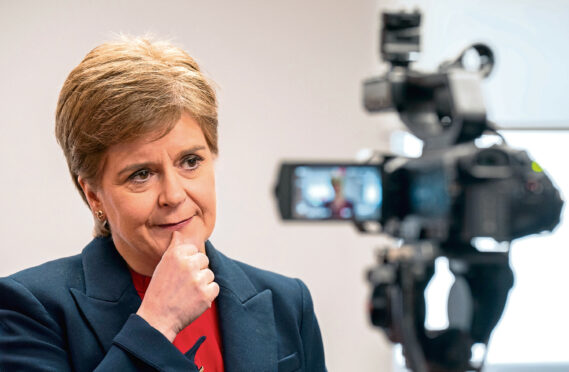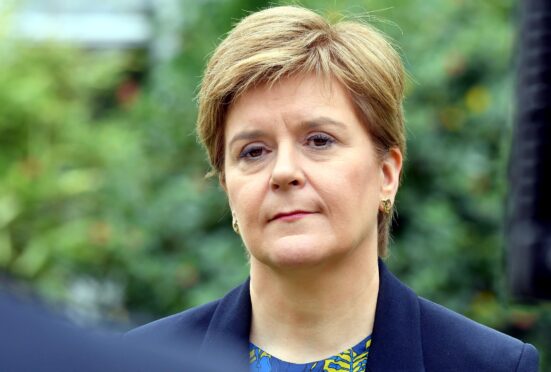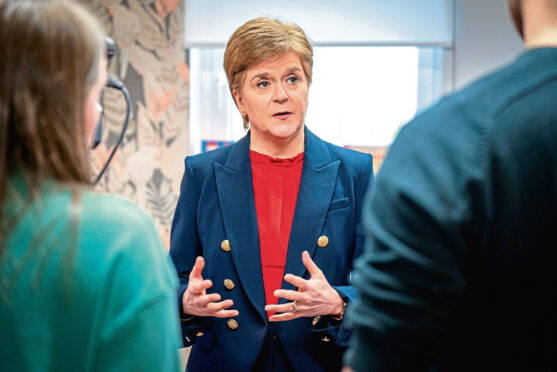
The SNP’s plan to turn the next general election into a de facto independence referendum will be fraught with difficulty, according to a senior strategist in the 2014 Yes campaign.
Stephen Noon said there are serious questions about the SNP’s chances of winning majority backing for independence if the party runs the Westminster vote due in two years as a single-issue campaign.
He said: “I think we should be asking ourselves is this going to be our ground: a Westminster election dominated by UK issues, people voting to choose who’s the prime minister of the UK and we’re trying to talk into that about independence.
“It’s also an electorate that doesn’t include 16 and 17-year-olds, it doesn’t include European citizens. So it’s not the most Yes friendly franchise. So I think there are serious questions to be asked about is this the right ground to be fighting on.
Nicola Sturgeon last week said her party would push ahead with plans to run the next national election on a single issue after the Supreme Court ruled the Scottish Parliament could not legislate for a referendum without agreement of Westminster. A special SNP conference is to be called next year to discuss the mechanics of the campaign.
But, speaking on DC Thomson’s political podcast The Stooshie, Noon said: “The first minister was talking about we have to, at some point, win 50% of the vote. We have to run this race, so to speak.
“But is running it at a UK general election essentially us running up hill while everybody else is running on the flat?”
Many nationalists question the first minister’s tactical choices in recent years and believe the notion of a de facto referendum is a huge gamble which, if lost, could needlessly sabotage the independence movement. It is unclear what happens if pro-independence parties win 51% of the vote in a general election but commentators believe that result would compel Westminster to grant a Section 30 agreement for another referendum.
Toni Giugliano, the SNP’s policy development convener, said: “I think if we come out of that election and negotiations with a Section 30 order, then I think that would honour democracy in Scotland and it would put the UK in a much better light on the international stage.”
Giugliano said the single issue election plan is risky but it was a tactic to advance the cause of independence. The former Holyrood candidate said: “Of course it’s risky. It should be risky. We’ve been in government for 15 years. The reason why we’re here is not to perpetually be in government – the reason why we’re here is to deliver independence for Scotland.”
SNP depute leader Keith Brown said: “It is a movement which will hit new heights by galvanising public opinion in every city, town, village and community the length and breadth of the country.”
Meanwhile it emerged the Scottish Government has 25 civil servants working on the independence project, at an estimated cost of up to £1.5m a year.
Data obtained by the Scottish Conservatives shows one senior civil servant is in the highest pay band where the maximum salary is £83,233.
Five officials earn under £47,000 on the lowest two pay ranges, followed by one who is paid £47,485 each year. Nine staff fall within the C1 pay band up to £62,167, eight are on £75,341 and one earns £77,340.
Scottish Conservative constitution spokesman Donald Cameron said: “Most Scots will be appalled that Nicola Sturgeon is squandering huge sums of public money and civil service resources on her pet project at the same time as imposing savage cuts on key public services.”

Enjoy the convenience of having The Sunday Post delivered as a digital ePaper straight to your smartphone, tablet or computer.
Subscribe for only £5.49 a month and enjoy all the benefits of the printed paper as a digital replica.
Subscribe
